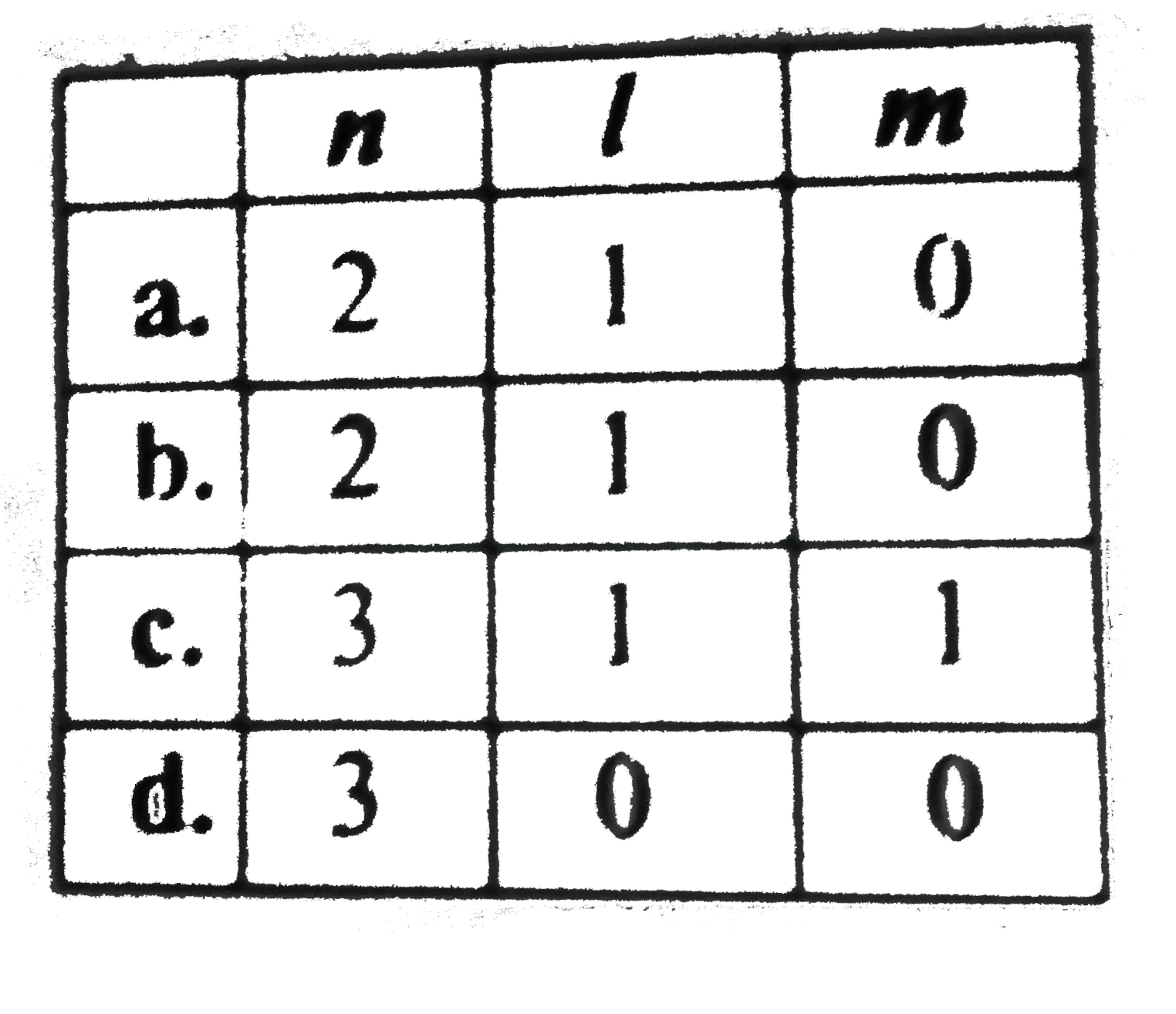The unpaired electron of Cu have quantum number
l=0,m=0,s=1/2
l=1,m=0,s= -1/2
l=2,m=1,s= -1/2
l=3,m=2,s= +1/2
To determine the quantum numbers of the unpaired electron in copper (Cu), we will follow a systematic approach.
1. Identify the Atomic Number of Copper:
- The atomic number of copper (Cu) is 29.
2. Write the Electron Configuration:
- The electron configuration of copper is:
Cu: 1s22s22p63s23p64s23d10
- However, copper is known to have a slightly different configuration due to stability reasons:
Cu: 1s22s22p63s23p64s23d9
- This means that copper has a configuration of 4s23d9, indicating that there is one unpaired electron in the 3d subshell.
3. Determine the Principal Quantum Number (n):
- The principal quantum number (n) corresponds to the energy level of the electron. For the 3d subshell, n=3.
4. Determine the Azimuthal Quantum Number (l):
- The azimuthal quantum number (l) is determined by the type of subshell:
- For s, l=0
- For p, l=1
- For d, l=2
- Since we are dealing with the d subshell, l=2.
5. Determine the Magnetic Quantum Number (m_l):
- The magnetic quantum number (m_l) can take values from −l to +l. For l=2 (d subshell), ml can be −2,−1,0,+1,+2.
- In a 3d9 configuration, the unpaired electron will occupy one of the ml values. We can assume it occupies ml=+2 (the highest value), but it could also be any of the other values depending on the specific arrangement.
6. Determine the Spin Quantum Number (m_s):
- The spin quantum number (m_s) can be either +12 or −12. For our unpaired electron, we can assume it has a spin of +12.
Final Quantum Numbers:
- The quantum numbers for the unpaired electron in copper are:
- n=3
- l=2
- ml=+2 (or any of the other values −2,−1,0,+1)
- ms=+12
- The atomic number of copper (Cu) is 29.
- The electron configuration of copper is:
Cu: 1s22s22p63s23p64s23d10
- However, copper is known to have a slightly different configuration due to stability reasons:
Cu: 1s22s22p63s23p64s23d9
- This means that copper has a configuration of 4s23d9, indicating that there is one unpaired electron in the 3d subshell.
- The principal quantum number (n) corresponds to the energy level of the electron. For the 3d subshell, n=3.
- The azimuthal quantum number (l) is determined by the type of subshell:
- For s, l=0
- For p, l=1
- For d, l=2
- Since we are dealing with the d subshell, l=2.
- The magnetic quantum number (m_l) can take values from −l to +l. For l=2 (d subshell), ml can be −2,−1,0,+1,+2.
- In a 3d9 configuration, the unpaired electron will occupy one of the ml values. We can assume it occupies ml=+2 (the highest value), but it could also be any of the other values depending on the specific arrangement.
- The spin quantum number (m_s) can be either +12 or −12. For our unpaired electron, we can assume it has a spin of +12.
- The quantum numbers for the unpaired electron in copper are:
- n=3
- l=2
- ml=+2 (or any of the other values −2,−1,0,+1)
- ms=+12
Topper's Solved these Questions
Similar Questions
Knowledge Check
The correct set of quantum numbers for the unpaired electron of Cu atom is :
An = 3, l = 2, m = –2, s = +1/2Bn = 3, l = 2, m = +2, s = –1/2Cn = 4, l = 0, m = 0, s = +1/2Dn = 4, l = 1, m = +1, s = +1/2The correct set of quantum numbers for the unpaired electron of chlorine atom is
Anlm210Bmlm211Cnlm311Dnlm300The correct set of quantum number for the unpaired electron of a chlorine atom is
A2,0,0,+12B2,1,−1,±12C3,1,1,+12D3,0,0,±12
The correct set of quantum number for the unpaired electron of chlirine atom is

View SolutionThe correct set of quantum numbers for the unpaired electron of chlorine atom is
View SolutionThe correct set of quantum numbers for the unpaired electron of chlorine atom is :
View SolutionThe correct set of n, l, m, quantum numbers for the unpaired electron of chlorine atom is:
View SolutionThe correct set of quantum number for the unpaired electron of chlorine atom is
nlm1 " " nlm1
View Solution

